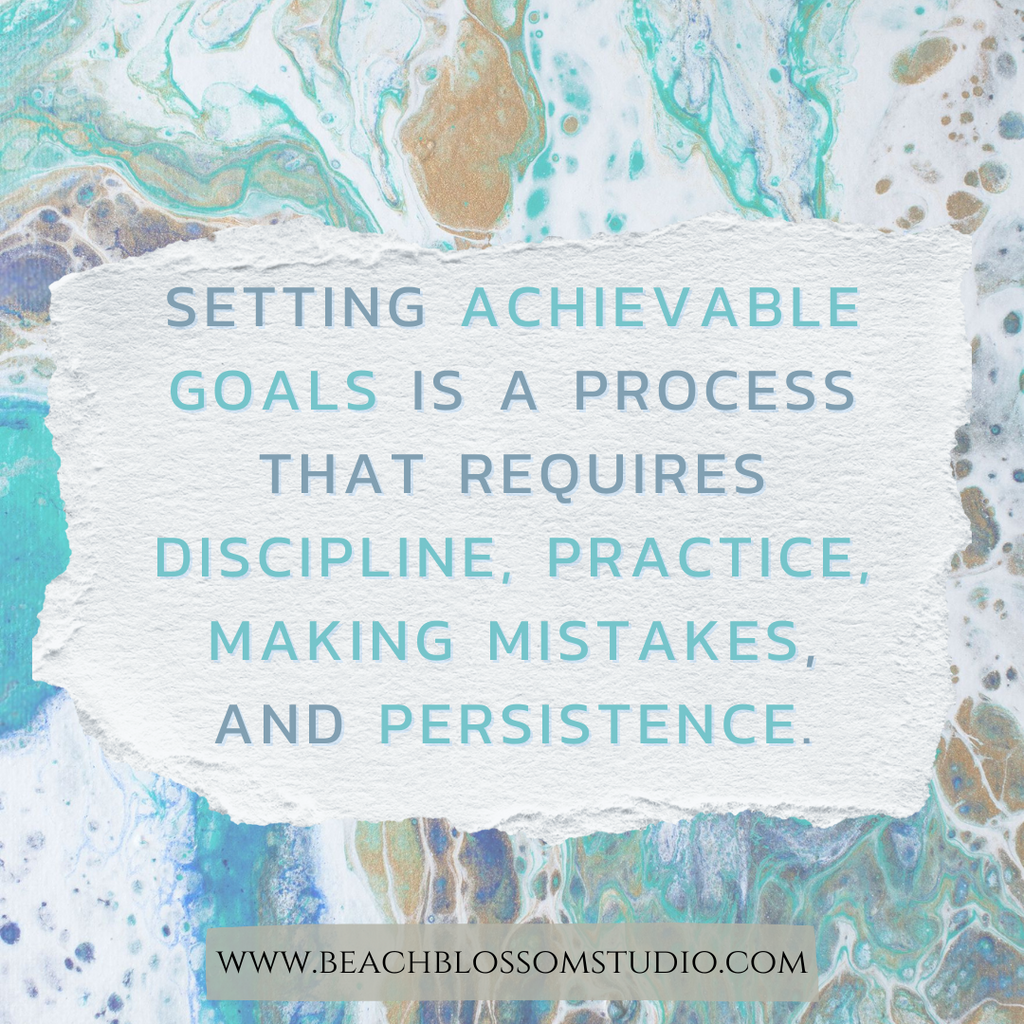Creating Achievable Goals

How many times have you heard that creating goals is the key to success? It may come as no surprise to you that there is much more to success than simply setting goals.
Most of us struggle to fulfill the goals we set for ourselves. There are various causes for this, including- We set unrealistic goals, lack the drive to follow through, and do not value the goal as much as we believe we do. In certain cases, events beyond our control — such as illness, parenting responsibilities, or a bad economy — require us to reconsider our goals. In this blog post, I will discuss why many people fail to reach their goals and how you can achieve everything you set out to do in your life.

What is a goal?
A goal is an aim that can be reached in measurable steps. It is more than just a want or a need; it has its own existence. A desire or a wish is less tangible and often just fleeting. Who wouldn't want to win the lottery? A goal is a desire, wish, or need that can be met by actions. It's more than just a wish or a dream.
How do you set a goal?
Setting a goal is a process that starts with an achievable need or desire. First, you must decide on the following
- What do you want?
- Where do you want to be?
- Your status, career, or qualifications?
A goal can be any ambition, wish, or need that can be met by actions that you take.
You then break down the goal into small individual steps or actions. Achievable goals are those that you have control over and can track your progress toward. Achieving long-term life-changing goals is a process of taking small and medium-term steps. If you try to take large steps all at once, you risk becoming burnt out and not accomplishing anything.
What actions are required?
Goals require action on your part. You must first determine what action is required to attain the goal. Your first step should always be to write down your goals. Putting pen to paper, and this is one instance where a real pen and paper are essential, gives your goals their own existence.
Writing a plan is an essential step in achieving your goals - without it, you will, over time, amend the long-term goal to fit your reality. You will eventually reduce the goal to a wish, and wishes only come true by chance.
Analyze the results
You must then analyze and plan in depth how you will achieve each particular goal. This entails creating a detailed strategy outlining the concrete steps required to attain each specific goal.
These actions create smaller, shorter-term goals that lead to larger, longer-term goals.

What steps do I need to take today?
Ask yourself every day, "What steps do I need to do today?" It should all be planned in advance by now, so double-check your plan and make sure you take each step every day. If you discover that more processes are required, include them in the plan.
Review your achievements every week and month
Every week, go through your weekly progress. Examine what you've done and what you may have overlooked. Make changes to your plan for the coming week or month.
Your plan should always take into account what you will do today, tomorrow, this week, next week before the end of the month, in the next 3 months, 6 months, and so on. Always write down your results.
What if things go wrong?
Goals are difficult to achieve because they force you to do things differently. To be successful, you must overcome your fear of failure and take risks. Expect setbacks; they are a natural part of the process.
Ready to set life goals and achieve them?
Now that you understand the significance of goals, it's time to take the first step in setting and achieving them.
Don't put yourself under too much stress. Even if you don't achieve all of your goals, simply writing them down can bring a greater sense of contentment and happiness. I often find that writing them down helps me feel calmer; otherwise, if I try to remember too much at once, my brain becomes scrambled.

Remember
Setting achievable goals is a process that requires discipline, practice, making mistakes, and persistence. Even if you have spent 20 years in the same career, there is no wrong time to begin a new goal in your life. You are never too old to pursue a new ambition.

Leave a comment